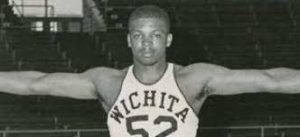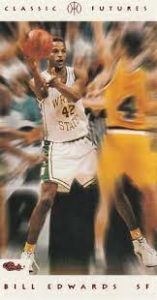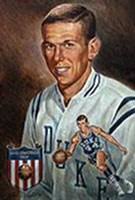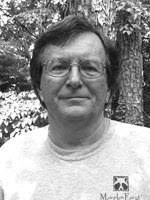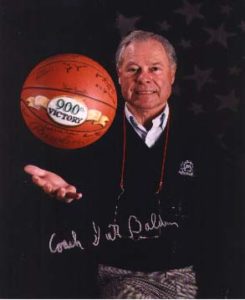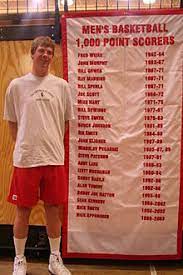When you change your last name to the Swahili word for “rock” you need to be tough enough to back it up, and Warren Jabali did exactly that. A 3-time all-MVC selection at Wichita State, he chose the ABA over the NBA and paid immediate dividends by winning ROY, scoring 33.2 PPG in the 1969 ABA Finals, and being named Playoffs MVP. He was named an All-Star 4 times in a 5-year span from 1970-1974 and was All-Star Game MVP in 1973. Warren passed away in 2012 but HoopsHD’s Jon Teitel got to chat with Len Trower-Mfuasi about his best friend’s scoring/passing/defending. Warren would have turned 75 today so we take this time to reflect on his life/legacy.
Warren played at Central High School and is still considered 1 of the greatest players to ever come out of the Kansas City area: why did he decide to go to Wichita State? He did not come from a family of people who went to college so he learned the game in the backyard of a segregated community. He did not have his eye on any particular college but received a lot of offers. He went to Kansas for a visit but did not like the culture there. When he went to Wichita and met Dave Stallworth and others who were from the Black community and saw them all partying together, he decided that he liked that atmosphere.
He was a 3-time All-MVC selection: how was he able to be so dominant throughout his college career? I am sure that he worked on his game but he was also gifted. He was built like a football player and could jump incredibly high. He could handle the ball like a 5’10” PG and could pass like Steve Nash: his skills were just instinctive. He could drive and dunk and had a pretty decent jump shot, and was also pretty fast for a guy of his size in that era. You could not steal the ball from him because his hands were extremely strong. I am only 5’10” and I measured my hands against his once: he did not have hands much bigger than mine but he was so strong. He loved to set up his teammates.
In the summer of 1968 he was picked 44th overall by the Knicks in the NBA draft but decided to sign with Oakland after they picked him in the ABA draft: why did he go with the ABA instead of the NBA? If I recall correctly it had something to do with the money. I think he just got a more attractive offer from the ABA.
He was named ROY after scoring 21.5 PPG and helping his team improve from 22 wins the year before to 60 wins: how was he able to come in and help turn things around so quickly? Again, I do not think he knew how talented he was in relation to other players. I am not sure who else was on that Oakland team. It was like LeBron James: he had the same impact in terms of scoring/passing. Teammate Rick Barry once said that Warren was superior to Oscar Robertson in REB/AST!
He scored 33.2 PPG in the 1969 Finals vs. Indiana en route to winning the title and being named playoff MVP (becoming the only rookie guard in NBA/ABA history to be named Finals MVP until Magic Johnson did so in 1980): what did it mean to him to win the title, and how did it feel to win such an outstanding honor? He won that in part because Barry was injured in the playoffs. He never talked much about awards: his focus was on the condition of African-American people at the time and he was not the most social person. Most athletes were coddled people who just cared about parties but Warren was a student of current events. I am sure that it meant something to him but he never discussed it during the 47 years that we were friends. He was a serious-minded person.
Take me through the 1973 All-Star Game (which is often referred to as “Jabali’s Jamboree”):
He had 16 PTS/7 AST/3 STL and made the only 3-PT shot of the game en route to being named MVP: how was he able to play his best against the best? Because he was just as good as everyone else, if not better.
The very next day he was placed on waivers and was not picked up by any other team (allegedly for doing something during All-Star Weekend that embarrassed/enraged all the owners): what did he allegedly do, and did he think it was a racial thing? He told me that he found out that they were going to give the players a cheap watch in exchange for playing in the game, and he considered that to be an insult. He started organizing the players to boycott the pregame dinner with the players/owners and some of the players did indeed boycott: I was told that Dr. J initially agreed before changing his mind at the 11th hour. He always thought in the back of his mind that it might be racial: how else do you go from being MVP to being unemployed in a 24-hour span?! He had a reputation that mischaracterized who he was so the incident was just the straw that broke the camel’s back.
In February 1975 he scored 23 PTS for San Diego in a 176-166 4-OT win over the Nets (Julius Erving scored a career-high 63 PTS), which at that time was the highest scoring game in the history of pro basketball: where does Dr. J’s performance rank among the greatest you have ever seen? He told me that it was an incredible game where Erving did anything he wanted to do, but the guy Warren spoke most highly of was Roger Brown of the Pacers.
A few months later at age 28 he had to retire due to knee problems: how frustrating was it for him to not be able to go out on his own terms? He could still play but I think that he just had no place to go, like Allen Iverson. Nobody wanted to pick him up because he was “damaged goods” in terms of his legs/personality. He was frustrated but there were other things off the court that he could do so it did not bring him down in spirit.
His 2389 career AST remain #6 in ABA history: how was he able to balance his passing with his scoring? When you can pass and handle the ball as well as he did the defense could never tell what you were going to do, so he could fake passes and go to the hole. The media lumped John Brisker along with Warren as the “bruisers” in the sport. He had creative moves way back then, just like Earl Monroe. I got the chance to play against Monroe once: talk about humiliation! Look at a guy like Tony Parker: you knew that he was going to either drive to the basket or pull up for a jumper, but if you were back on your heels then you never knew exactly what he would do.
He had a reputation as 1 of the most feared defenders in the league: what was his secret for playing great defense? He had quick hands and was feared in part due to his reputation: you would not use your elbow to push him away because he would come right back at you. Nowadays you can get called for a foul just by touching a guy’s fingernail. Back then the refs had personal attitudes towards certain players…so when he got tripped by someone and no call was made he would just step on his opponent! He had good lateral movement and could elevate high enough to send his opponent’s shot back.
Warren passed away in 2012: when people look back on his career, how do you think that he should be remembered the most? Warren said he does not consider himself to be 1 of the greatest of all time but I told him that his modesty was ridiculous. If you look back on his skill set in addition to his stats you can see how good he was. He was 6’2” and could hit his head on the rim during high school. I definitely think that he should be included in the top-50 greatest players of all-time. When Barry went down during the championship run Warren took over and averaged 30 PPG. He was making a lot of moves that Michael Jordan later performed during the 1990s.

